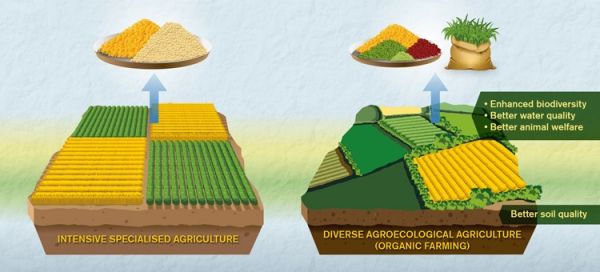The environmental effects of agriculture and food are hotly debated. But the most widely used method of analysis often tends to overlook vital factors, such as biodiversity, soil quality, pesticide impacts and societal shifts, and these oversights can lead to wrong conclusions on the merits of intensive and organic agriculture. This is according to a trio of researchers writing in the journal Nature Sustainability.
The most common method for assessing the environmental impacts of agriculture and food is Life Cycle Assessment (LCA). Studies using this method sometimes claim that organic agriculture is actually worse for the climate, because it has lower yields, and therefore uses more land to make up for this. For example, a recent study in Nature Communications that made this claim was widely reported by many publications, including the BBC and others.
But according to three researchers from France, Denmark and Sweden, presenting an analysis of many LCA studies in the journal Nature Sustainability, this implementation of LCA is too simplistic, and misses the benefits of organic farming.
“We are worried that LCA gives too narrow a picture, and we risk making bad decisions politically and socially. When comparing organic and intensive farming, there are wider effects that the current approach does not adequately consider,” says Hayo van der Werf of the French National Institute of Agricultural Research.
Read more at Chalmers University of Technology
Illustration: Intensive farming gives higher yields, but organic practices deliver other benefits. CREDIT: Yen Strandqvist/Chalmers


